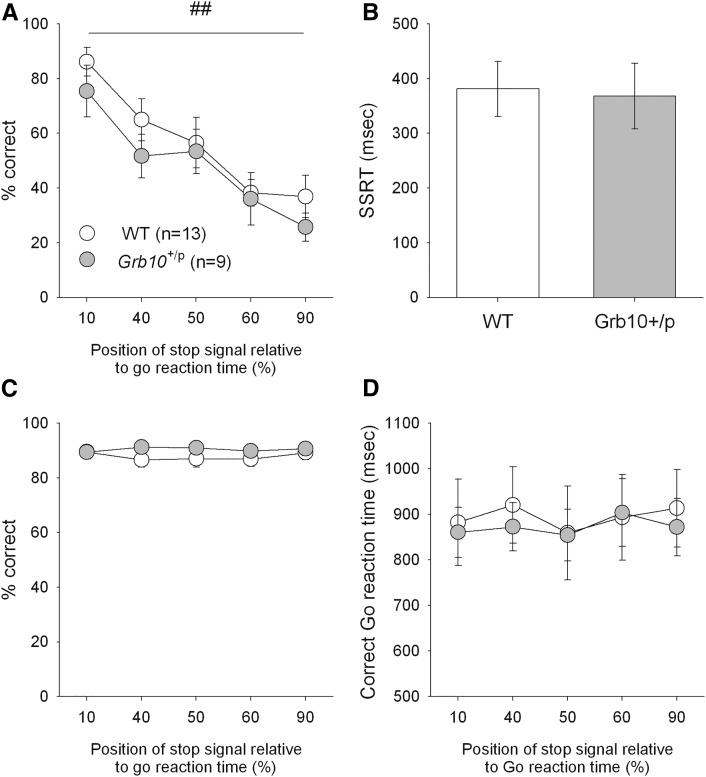Figure 2.
No difference between Grb10+/p and wild-type (WT) mice in performance on a stop-signal reaction time (SSRT) task. Both WT and Grb10+/p mice showed an equivalent ability to perform the SSRT task, showing the expected change in percentage correct responding during a stop trial (A) as the position of the stop-signal was altered, but there were no differences between Grb10+/p and WT mice. Grb10+/p and WT mice also showed equivalent SSRTs at 50% correct stopping (B). There were no genotype differences for the go response for both groups of mice, in terms of percentage correct responding (C) or response speed (D). Data shows mean ± SEM; ## represents P < 0.01 main effect of stop-signal position.

